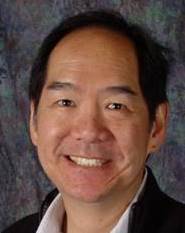This is a guest post by Richard Woo of the Russell Family Foundation.
 Framing is powerful. Consider this.
Framing is powerful. Consider this.
The Russell Family Foundation (TRFF) mission is to “invest resources and relationships in grassroots leaders, environmental sustainability and global peace.” Nowhere is there any mention of “grants, programs or initiatives.” Grants, programs and initiatives are the shorthand we use to label the products and activities of our foundation’s work.
Grants, programs and initiatives define the source (TRFF) and the boundaries (our stuff) of what the foundation offers the communities we serve. In other words, we develop grants, programs and initiatives and deliver them to the community. That’s why philanthropy as a transaction is called the “giving profession.” Embedded in these gifts are the “resources and relationships” mentioned in our mission statement.
This is noble. It is also seductive. Operating from inside the foundation, it is easy to begin believing our own public relations. Therein lies the true occupational hazard of this profession. The best antidote to a swelled head is checking our egos at the door. If only it were so easy. If we aren’t careful, we may begin to believe the world revolves around our grants, programs & initiatives. That frame of mind is sometimes reinforced subtly with words like “ mission, focus or strategic.” From there it is but a few short steps to assuming undue ownership, feeling territorial or neglecting to build more expansive community connections.
An important element of making grants, programs and initiatives for community consumption is the relevance of those offerings and the nature of our relationship with the community. What if we offered a grant and no one wanted it?
It is important to set the right frame on the foundation’s community engagement. We must emphasize our relationships even as we deliver grants, programs and initiatives. When we pay as much attention to authentic relationship development as we do to program development—there is a greater chance of becoming relevant. Relationships are boundless, programs are finite.
Imagine if I changed my title to “Chief Relationship Officer” or CRO. Increasingly my attention is spent on relations with the board, staff, peers and the community / field-at-large. The other day I asked one of our foundation colleagues: “What if your title was changed to Relationship Manager?” That leads to other questions:
• How might these shifts in language and perspective transform our approach to the work?
• How would we reallocate our time, budgets or skills development to build stronger relationships?
• What’s the difference between managing “people & relationships” versus “programs & things”?
As often as not, the best grants, programs and projects are born from deep relationships with our communities and partners.
*****************************************************************************
If you found this blog post useful, please subscribe. On Twitter? Follow me @Philanthropy411.






